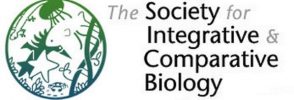Contents
- Message from the President
- Message from the President-Elect
- Message from the Program Officer
- Message from the Secretary
- Update from the Communications Editor
- Update from the Editor, Integrative and Comparative Biology
- Update from the Editor, Integrative Organismal Biology
- Report from Broadening Participation Committee
- Report from Educational Council
- Report from Public Affairs Committee
- Report from Student-Postdoctoral Affairs Committee
- Report from the PUI Working Group
Message from the President
Melina Hale, president@sicb.org
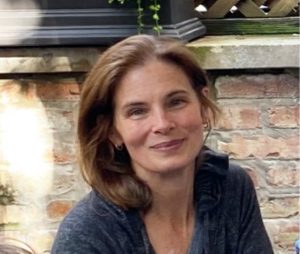
Hello everyone! I hope you are having a great last few months of 2022 and looking forward to our SICB 2023 conference to start the new year. After a fully virtual 2021 conference and a pared-down 2022 conference due to COVID, we are looking forward to a more typical, pre-pandemic in-person SICB AND are adding features with lessons learned from recent remote efforts. In particular, SICB+ will be running and include select content streamed from the in-person meeting as well as SICB+ contributed presentations. Please see Program Officer Thom Sanger’s message below for more on conference programming and (also piloted this year!) year-round virtual programming.
Engagement and Transparency. This year the executive officers have continued to run open member forums and zoom drop-ins in order to share what’s happening with SICB on our end, receive feedback and answer questions. Thank you to everyone who attended or otherwise reached out on SICB matters through the year. There will be a last 2022 forum before SICB 2023, most likely in early December. Also, as last year, look for scheduled in-person/zoom drop-in times with SICB leadership during SICB 2023.
Several issues with the society’s email system are being addressed by SICB’s management company, Burk Associates Inc. (BAI). If you think you (or others in your group) are missing SICB communications or not receiving responses, please let me know – we want to make sure that you are connected, and examples of email problems will help BAI interrogate the system.
Mangum Awards for Student Support. The Mangum student support program is a critical and beloved part of SICB’s support of student scientists. For many years pre-pandemic, the program provided support for housing or registration costs. For housing support, that meant four students per room sharing beds for a very low co-pay ($75 for the full meeting). For the SICB 2022 conference, due to COVID safety and management, the number of students per room was reduced to two but that arrangement is not financially sustainable. This year, SICB is trying a new approach that retains a very inexpensive four-students-per-room arrangement while also providing the option for students to share with fewer roommates and roommates who are not in the Mangum program, with a higher copay. We are trying to balance management of the cost to SICB while providing affordable conference housing and flexibility for students. Please see Mangum information to learn more ***and please consider donating to the Mangum Fund to support students.***
Childcare at SICB 2023. We are excited that the childcare program will return for SICB 2023! The arrangement is very similar to that provided in SICB 2020 and with the same provider company. Please find details on the conference website.
Venue Selection. Having the SICB 2023 conference in Texas has been a topic of concern and wide discussion over the last few years. We went back to review the selection process and more recent reconsideration of the Austin venue. A detailed description compiled from meeting minutes and BAI records is provided on the conference website. Last spring SICB encouraged members to learn about and provide input on venue selection, please reach out with thoughts. Input was critical for SICB 2026 selection (Portland, OR!) and will be as attention turns to SICB 2027 and SICB 2028.
COVID planning. Safety measures are still developing and we’re watching COVID conditions closely. A few major decisions to date: 1. Masking is required in conference spaces. A supply of masks will be available for free at the conference as will a more limited number of COVID tests. 2. This year there will not be a vaccine registry for the conference. 3. Last year, for COVID safety and due to the dynamic environment of COVID last fall and winter, if people registered for the meeting and then decided not to attend, registration was refunded. We felt the flexibility was critical, given the circumstances, but that is not a financially sustainable policy and so SICB is reverting to its pre-COVID policy of not providing registration refunds.
Code of Conduct and Other Safety Measures. As in past years, SICB is committed to supporting a safe and respectful environment at the conference. SICB will employ a professional safety officer, Paula Brantner, for the SICB 2023 conference – Paula worked with us last year as well. In addition, the Safety Ally program and a SICB reporting/support line will be in place. Please look for communication later in the fall if you would like to serve as an Ally. Lastly, this year we are piloting an additional safety support option for SICB attendees so that an attendee who needs support can reach a SICB staff member/officer who will stay on the line with them, help them with transportation to a safe conference space, and meet them there for any next steps. This is not a substitute for reaching out to local authorities for emergency help, but a supplemental option for non-emergency situations.
Message from the President-Elect
L. Patricia Hernandez, president.elect@sicb.org
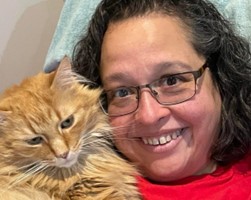
It is with a fair bit of nervous excitement that I write my final newsletter as President-Elect. The January meeting is shaping up quite nicely and I look forward to our beloved SICB meeting returning to pre-pandemic numbers in attendance.
It has been a pleasure serving as your President-Elect and I would like to thank the many volunteers working on our committees that have contributed so much to the success of SICB. It has been a joy to get to know members of all our divisions better. I have been truly impressed by the number of people who have been willing to serve. It is our rich diversity and biological breadth that makes this Society so special. Please know that no matter what academic level you are at there is likely some way that you could serve SICB. Ulrike Muller and Adam Summers have set up several student journalist opportunities at ICB and IOB. Please reach out if you are interested in working with these journals.
In collaboration with BAI, I am setting up a set of Google folders for all our committees in the hopes of facilitating everyone’s work. I am hoping that by making each committee’s charge and day-to-day operations that much more transparent the activation energy required to effectively chair our different committees will be lowered significantly. If you are presently volunteering for one of our committees and have suggestions for how things might run more smoothly, please reach out.
If you would like to volunteer, please fill out this online volunteer form or contact me at president.elect@sicb.org.
Message from the Program Officer
Thom Sanger, programofficer@sicb.org

With over 1800 presentations from scientists representing 26 countries, the SICB you know and love is back! Our meeting has returned to its pre-2021 size. On behalf of all the officers, we are excited to see you in January!
The meeting microsite is now live and is packed with information. The program is available so that participants can begin planning their meeting experience. As you explore the microsite, take a moment to read SICB’s statements about venue selection and information that pertains to decolonizing science. Below are a few highlights of the #SICB2023 meeting.
As a reminder, all presenters must register before November 1st to maintain their place in the program. Information about SICB+ will be sent in December. Thank you to the 700+ presenters that have agreed to upload content. Look for the green SICB+ tags in the program as a preview of our virtual platform.
Plenaries and Special Lectures
We have a great lineup of plenaries and special lectures in store for 2023. In addition to our usual complement of evening presentations, we also have a new special lecture in the upcoming program, the Science and Society Special Lecture, sponsored by SICB officers and the Broadening Participation Committee.
SICB embraces the multitude of ways that our members make organismal biology an exciting and rewarding field of science. Our scientists are people with diverse ethnicities, races, cultures, backgrounds, ages, and individual stories. The new Science and Society Special Lecture celebrates prominent speakers whose professional career has helped scientists embrace their identities while furthering the scientific endeavor. Our inaugural speaker will be Dr. Beronda Montgomery, author of Lessons from Plants and recently appointed as the Vice President for Academic Affairs and Dean of the College at Grinnell College.
- Science and Society Special Lecture: Dr. Beronda Montgomery
- Past President’s Address: Dr. Beth Brainerd
- George A. Bartholomew Lecture: Dr. Eric Riddell
- Howard A. Bern Lecture: Dr. Tyrone Hayes
- Carl Gans Award: Dr. Alejandro Rico-Guevara
- John A. Moore Lectureship: Dr. Kimberly Tanner
Symposia
Once again, SICB brings to you an amazing collection of symposia. The organizers have worked for a full year to bring together a lineup of speakers that will push their fields forward into the future. The talks span topics from genome analysis and manipulation to whole organism physiology to novel approaches aimed at improving the practice of science for all. Check out the symposia and their complementary sessions in the meeting program.
Workshops, Socials, and Activities
The 2023 Annual Meeting will have a strong series of workshops, socials, and activities for meeting participants. There are currently 12 workshops planned, including a half-day interactive workshop on January 3rd about genomic analysis in non-model organisms. Continue to check the meeting site for updates and the addition of new programs.
Each year SICB also hosts a series of social events aimed at uniting old friends and making new colleagues. Social events are currently being planned. Help us celebrate all the hard work of the symposium organizers, student award winners, divisional officers, and an all around amazing meeting by joining the End of Meeting Celebration. This is a ticketed event ($20 for faculty and postdocs, $10 for students and other members). A drink ticket is included in the price. Include this option during meeting registration if you plan to attend or contact meetings@sicb.org if you already registered and missed the opportunity. Tickets are non-refundable.
SICB understands that people sometimes need a break from the meeting. We are actively working with local businesses to find discounts. We are also planning informal meetups such as morning runs, bird watching, or a trip to the bouldering gym. Watch later communications for further information.
COVID-19 Planning and Precautions
In preparation for the SICB 2023 in-person meeting, COVID safety is of critical importance. SICB’s approach to COVID safety is based on accessibility – we want to structure our meeting to make it as welcoming as possible for meeting attendees. Some attendees or their loved ones are particularly vulnerable to COVID. Masks will be required at SICB 2023 in all scientific sessions (talks and posters) and in many other areas of the meeting. Read a full description of SICB’s COVID safety protocols on the microsite.
You can direct questions about the program to SICB Program Officer, Thomas Sanger (ProgramOfficer@sicb.org) or the Senior Meeting Manager, Lori Strong (lstrong@burkinc.com).
Message from the Secretary
Michele Johnson, secretary@sicb.org
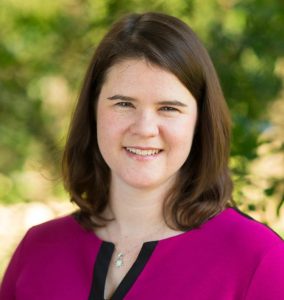
In our annual elections last spring, we elected four society-wide officers. Michele Nishiguchi is our new President-Elect, Marianne Porter was elected to the position of Secretary-Elect, Brian Tsukimura is the incoming Treasurer-Elect, and Karen Chan was elected to be Member-at-Large. Nish, Brian, and Karen will take office at the end of the 2023 conference in Austin. Marianne has already began her work as Secretary-Elect in August, as the term for this position changed with the recent bylaws change to our leadership structure, and she’s learning the ropes quickly and capably. I am excited for the opportunity to work closely with her over the next year!
Congratulations to these new society leaders, and thanks to all who voted! The full Election Report for 2022 officer elections is available here.
Divisions are now ramping up for officer elections in the spring. If you would like to stand for election in one of our divisions, please reach out to the your divisional secretary, or if you are interested in society-wide office, contact President-Elect Patricia Hernandez. Join our large team of society leaders, invested in making a difference in our field.
In my role as Secretary, I am also continuing to work with other SICB leaders on efforts to streamline officer transitions, to update the procedures governing Best Student Presentations (and to make those procedures more transparent to our student participants), and to make the governance of our society run more smoothly. Please reach out to me if you have feedback on how to make SICB a better society for us all.
Message from the Treasurer
Miriam Ashley-Ross, treasurer@sicb.org
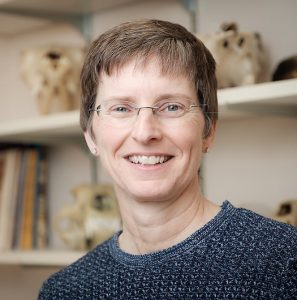
As the leaves turn and the air turns crisper, thoughts of the SICB faithful turn toward the Annual Meeting, which seems just around the corner. Most of you have already submitted abstracts, and are preparing to register for the meeting. And since most of SICB’s finances revolve around the Annual Meeting, it’s appropriate to take a look at how we’re doing for this year.
The January 2022 Meeting in Phoenix, AZ was a downer, at least as far as finances are concerned (by all accounts, those who attended had a fantastic time). For that, we can lay the blame on Omicron: many of the members who registered for the in-person meeting switched to virtual-only, resulting in a considerable drop in revenue (because we allowed attendees to switch from in-person to SICB+ only without financial penalty). We had planned for ~75% of normal (pre-COVID) in-person meeting attendance, and the rest virtual, which would have seen us take a loss of ~$90,000 on the meeting (that sounds bad, but it would have been covered by the surplus of $122,000 that we had coming into Fiscal Year [FY] 2022; see previous newsletters for details). However, Omicron made things far worse – the reduced attendance (only ~1000 in-person) resulted in a loss of over $200,000. The Society has maintained cash reserves for just such a crisis, so we are not in immediate danger of bankruptcy. However, we cannot weather another year like the last, making planning for the Austin 2023 meeting even more fraught.
With excellent help from BAI, the SICB Finance Committee (composed of the Treasurer, President, President-Elect, and Past President) undertook the task of modeling the finances of the 2023 meeting under different scenarios of attendance in different categories, and registration fees. We settled on a model of approximately the same total attendance as our historical average for the last several years pre-COVID (~2200), with 1600 in-person attendees and 600 SICB+ only; we set registration fees in the various categories so that if our numbers held perfect we would have a loss of ~$10,000. We thought that would be a conservative estimate, and hoped that in-person attendance would be higher, so that the meeting could at least break even.
The happy news is that things are looking even better: after the Abstract submission deadline, we have ~1800 abstracts for presentation. Historical data on the last ~20 years of meetings indicates that that number of abstracts should translate to ~2100 in-person attendees – if that number holds, then SICB stands to be in the black for the meeting by almost $90,000, which will help to begin to recoup the loss we took on the Phoenix meeting. We are mindful, however, that it is possible that another wrench might get thrown into the machinery at the last minute, and as we know that SICB cannot take another loss like 2022 (bankruptcy would be a real possibility), we have reverted to the “old” (pre-COVID) cancellation policy.
One of the other budget items that we have examined closely this year is the Mangum support program, which defrays most of the housing costs for eligible students. We realized that we had not increased the co-pay contributed by the students ($75) for over 15 years, even though hotel costs have gone up considerably and the support benefit has been increased from 4 to 5 nights. Mangum program costs are partly defrayed by transfers from the Mangum Fund, but that accounts for a small part of the total. With costs threatening to balloon, we were faced with two options: (1) modestly increase the co-pay for students, or (2) decrease the number of students supported. The Finance Committee unanimously agreed that we wanted to keep Mangum support available for the largest number of students, so we settled on option 1. Students will thus see a slightly larger cost to them (with more flexibility in who they want to room with), but the benefit is that more students will be able to take advantage of Mangum support. Complete details for students can be seen on the meeting registration site.
While SICB remains financially sound, we all need to realize that we can’t take that condition for granted. We need our members to attend the Annual Meetings in person so that they do break even or better. So we really hope to see y’all in January at the Austin 2023 meeting!
Update from the Communications Editor
Molly Jacobs, comm.editor@sicb.org
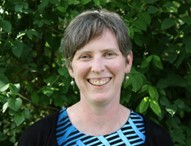
How do you get your information from SICB? What’s the difference between a member update and the newsletter? Where would you look for the most up-to-date information about SICB 2023? As SICB’s Communications Editor, I think about many of these things and would love to hear your thoughts!
My favorite way that we communicate with our members is through the SICB website! Why do I love it so? That’s where you can find the best science stories: see what we are featuring on the main page slider, check out the student journalism articles, or click over to the journals and read their amazing blogs (ICB and IOB)! If you want to stay on top of SICB science and keep that meeting feeling going all year, look no further. If you have great SICB science stories you’d like to share, feel free to reach out: comm.editor@sicb.org.
When is that registration deadline again? To keep us all in the loop and help us stay organized, SICB sends three types of official communications to its members via email. Member Updates are short, monthly, bulleted lists of updates and opportunities. If you have something you’d like to have included in a member update, email me at comm.editor@sicb.org. Newsletters (like this one) come out twice a year – Newsletter articles are written by a variety of SICB leaders, and are a great way to get to know the society. Read the newsletter to find out what officers, committees, and divisions have been up to, and why! Newsletters are compiled by our amazing society Secretary (secretary@sicb.org). Finally, SICB also sends out Email Blasts on specific topics. We use these for important reminders, policy updates, time-sensitive messages, and other information that we want to make sure our members see. Best of all, the most recent examples of ALL of these can be found on the SICB Communications page of the website!
What about Twitter? @SICB_ is very active on twitter, as are many SICB divisions – see how many you can follow! We sometimes use Twitter to amplify messages sent out via other media, and always to share more science. Our twitter feed is organized and moderated by our social media ambassadors and SICB’s Public Affairs Committee.
Update from the Editor, Integrative and Comparative Biology
Ulrike Müller, editor.icb@sicb.org
ICB news
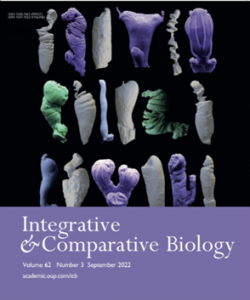 ICB is collaborating with the Division of Botany on a series of Integrative Biology Incubator Workshops. Our first event was on October 14, 2022, with more events to come. Please join us to share your ideas around the questions “How do plants, animals, fungi and algae solve the same problems differently?”, “What blind spots become apparent in our core biological concepts when we compare and contrast solutions from different biological kingdoms?”, and “What do you wish more biologists knew about the kingdom of organisms that you work on?”
ICB is collaborating with the Division of Botany on a series of Integrative Biology Incubator Workshops. Our first event was on October 14, 2022, with more events to come. Please join us to share your ideas around the questions “How do plants, animals, fungi and algae solve the same problems differently?”, “What blind spots become apparent in our core biological concepts when we compare and contrast solutions from different biological kingdoms?”, and “What do you wish more biologists knew about the kingdom of organisms that you work on?”
If you have any questions, please contact Suzanne Miller at icbjournal@sicb.org.
Invitation to propose special issues of ICB
ICB continues to invite proposals from the SICB community for special issues. In 2021, we collaborated in 2021 with Jumpstart Biology on a special issue. In 2022, we will publish two paper groupings around the topics “Reefs and Climate Change” headed by Kory Evans, and “Genomics” headed by Anthony Snead and Fernando Alda. Please share with us your ideas for topics that you would like to see ICB cover. We offer collaborations at many levels of commitment, from pitching ideas over inviting papers to acting as guest editor for your own paper grouping.
Welcome to new ICB board members
ICB would also like to welcome our most recent team members. Joining us as divisional assistant editors are Nagayasu Nakanishi (DEDB), Jerry Mekdara (DNNSB), Nick Burnett (DCB), Tosha Kelly (DEDE), Janneke Schwaner (DCB); as non-divisional assistant editors: Alex Troutman, Dan Becker, Yusan Yang, Christopher Mayerl; as associate editor: Marianne Porter. We are also welcoming 21 editorial reviewers: Emily Lau, Pearl Rivers, Elias Lunsford, Oluwaseun Ajayi, Shebin Tharakan, Venkata Amarnadh Suprapanneni, Tony Breitenbach, Julia Zeh, John Williams Soriano, Madeleine Hagood, Amar Surapaneni, Sam Bogan, Mehrnoush Nourbakhsh, Bishida Paul, Emily Ray, Sarah Elizabeth Britton, Ebony Weems, Pedro Peres, Aubrey Clark, Morgan Slevin, and Kenzie Pereira.
We invite graduate students and early-career scientists to reach out to us if you are interested in serving as an editorial peer reviewers or guest editors.
Update from the Editor, Integrative Organismal Biology
Adam Summers, editor.IOB@sicb.org
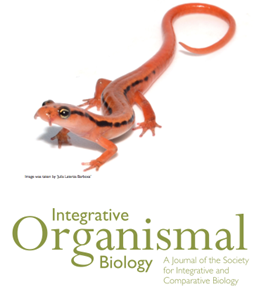
This has been an outstanding year for Integrative Organismal Biology. We are seeing a clear trend upwards in our submissions that should see us exceed our pre-pandemic projections. We are already well ahead of the number of manuscripts we saw last year. Our published articles are doing well by the metric of citations, with more than a dozen having more than 20 citations. This is remarkable considering our first articles appeared in January of 2019!
Our AltMetric statistics have been even more impressive, with most of our published articles in the top 10% of all research tracked. Our preliminary data does not suggest a link between AltMetrics and traditional citations. Presumably these early, strong citations led Clarivate/ISI to issue an impact factor for the journal several years before we expected it. The initial impact factor is 3.2, which puts us squarely in the middle of the group of long established journals with whom we are competing for top quality manuscripts.
Our editorial team has expanded, with expertise in invertebrates, development, evolution, and systematics. We welcome Kit Yu Karen Chan, at Swarthmore College, a member of the Division of Invertebrate Zoology; and David Blackburn of Florida State University, where he is the curator of herpetology. The current editorial board is diverse across many axes, and we are continuing to look for new members who are interested in being part of a new publishing model for integrative biology. We continue to be able to offer a very personalized manuscript handling process, with our editorial staff offering support to authors as they navigate the process of revision and strengthening their manuscripts. The redaction of reviews in this past year has been minimal; fewer than one manuscript in ten has had reviews with problematic language. This is in contrast to the situation in our first years, reflecting a more collegial and supportive attitude on the part of reviewers.
SICB members from every division have contributed to the early success of Integrative Organismal Biology, and for that we are deeply grateful. The editorial team of Integrative and Comparative Biology, led by Ulrike Muller, has also been instrumental in our impact as a new journal, contributing manuscripts and ideas. You have lots of great outlets for the science you produce. I hope you will send IOB one of your manuscripts in the year ahead. We are particularly interested in seeing DNNSB, DIZ, and DOB authored submissions – there will be special prizes for the next ones from each division!
Report from Broadening Participation Committee
Nicholas Burnett, Chair, chair.BPC@sicb.org

The Broadening Participation Committee has been busy planning for SICB 2023! We received a $10,000 gift from the Gans Charitable Fund to fund our Professional Development Awards, which provide financial support to SICB attendees, whether they are attending in-person or via SICB+. Applications closed on October 24.
We are making improvements to our Mentoring Program for SICB 2023. These changes include allowing mentors to choose mentoring topics, allowing mentees to self-select mentors, and providing prompts for in-person versus SICB+ interactions. Individuals interested in this program, either as a mentor and/or a mentee, will be able to sign up during the meeting registration process.
We are excited to announce that the 2023 Broadening Participation Workshop will be hosted by Dr. Clifton Poodry. The workshop will focus on developing leadership skills and identifying what skills are needed for career advancement.
Finally, we are pleased to announce the winners of our 2023 Diversity, Equity, Inclusion, and Justice (DEIJ) Award. Thanks to a $1,750 gift from the Gans Charitable Fund, we were able to recognize three winners for their outstanding commitment to and promotion of DEIJ in integrative and comparative biology. The winners are:
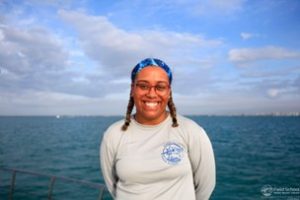
Amani Webber-Schultz is a PhD student at the New Jersey Institute of Technology, studying shark functional morphology and swimming biomechanics. Her efforts to promote DEIJ in integrative biology include local, national, and international activities, and are diverse in their nature: she is the Chief Financial Officer and co-founder of the non-profit Minorities In Shark Science (MISS), an organizer for Black in Marine Science Week, and a volunteer for local mentoring programs and bootcamps aimed at increasing the participation of underrepresented groups in STEM. Amani has also made numerous media appearances, including podcasts and webisodes, to discuss her research interests in shark biology and her DEIJ work on far-reaching platforms. For her work promoting DEIJ in integrative and comparative biology, Amani will receive a $1,000 honorarium.
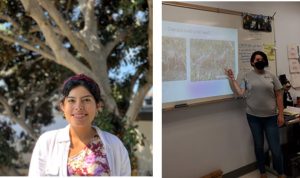
Researchers for Diverse Scientists (RDS) is a student group at California State University – Long Beach, led by Alexis Diaz (President), Yamilla Samara (Vice President), Anita Arenas (Secretary), and Aaron Sugimoto (Treasurer). The mission of RDS is to inspire, represent, and showcase diversity among scientists and research, and they accomplish this through outreach in K-12 classrooms in their area, particularly at underfunded and minority-serving schools, where they present on their early academic career and research. Since their inception in 2020, RDS has impacted more than 1,000 K-12 students in the Long Beach and Los Angeles Unified School Districts. For their work promoting DEIJ in integrative and comparative biology, Researchers for Diverse Scientists will receive a $500 honorarium.

Christofer Brothers is a PhD student at the University of California – Davis, studying functional morphology and behavior of predator-prey systems. Christofer is involved in a wide range of activities to promote DEIJ within his university and graduate program, and more broadly, within his discipline: he serves on the Diversity and Inclusion Committee for his graduate group and organizes their annual diversity and inclusion seminar, which promotes DEIJ within the field of animal behavior; he is a graduate student mentor in PREP@UC Davis, a program that prepares post-baccalaureate students from disadvantaged backgrounds and from historically marginalized groups to succeed in doctoral programs; he also writes and organizes outreach efforts for The Ethogram, a blog discussing animal behavior, to highlight interesting research and the diversity of scientists within the field of animal behavior. For his work promoting DEIJ in integrative and comparative biology, Christofer will receive a $250 honorarium.
Report from Educational Council
Lisa Whitenack, Chair, chair.EdCouncil@sicb.org
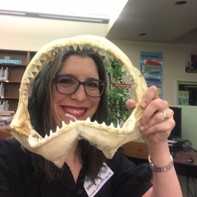
The Educational Council has been hard at work preparing for the 2023 annual meeting. We are collaborating with Dara Orbach and Katie Doyle for the Teaching and Learning X (TAL-X) workshop “Bridging Collaborations Between University and K-12 Classrooms: Cross-generational Active Teaching Approaches.” We are also excited to announce that the John A. Moore Lecturer for SICB’s closing plenary will be Kimberly Tanner, who runs the Science Education Partnership & Assessment Laboratory (SEPAL) at San Francisco State University. Her talk is titled “Talk Matters: Investigating the Nature of Non-Content Classroom Language – Instructor Talk – that May Mediate Student Inclusion, Engagement & Learning.” Finally, we have selected this year’s winner of the M. Patricia Morse Award for Excellence and Innovation in Science Education. Please join us in congratulating Bob Podolsky! We will present him with his award right before the Moore Lecture.
Please don’t forget that SICB typically has several posters and talks about education-related topics, from pedagogy to partnership & outreach. Keep an eye out for those once the schedule is released!
As a reminder, we continue to provide teaching support through maintaining databases for resources for online biology instruction. SICB’s Research and Education Resources library (RER) is still currently under construction, as we have been determining the best way to house the materials in a way that is searchable and useful to our members, while still affordable for the Society. Our next steps are to take your feedback and start building the structure and submission process. On behalf of the entire Ed Council, thank you for your patience as we take the time to make sure this resource meets your varied needs!
Report from Public Affairs Committee
Tonia Hsieh, Chair, chair.PAC@sicb.org
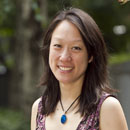
The Public Affairs Committee is busy this fall with some exciting events and opportunities leading up to, and during the 2023 annual meeting! We hope that you will join us for as many of these as you can.
First, we will be hosting a fall workshop in collaboration with Dr. Ulrike Müller (California State University Fresno) and Dr. Ripan Malhi (University of Illinois, Urbana-Champaign): “Including indigenous people in research and pedagogy.” This is a continuation of our conversation on decolonizing science from the 2022 annual meeting. We will discuss how to use intentional awareness, dialog, and integration to begin to undo the damage of historical colonialism–and ongoing perpetuation of these philosophies–in the practice and development of scientific knowledge. Drs. Müller and Malhi will present approaches they have implemented in the classroom and in their own research, providing space to explore how you, too, can implement unique solutions in your practice. This workshop will be held on November 18th, 12:00-2:00PM eastern. Please register here.
Second, in response to increasing science skepticism among the general public, our 2023 annual meeting workshop will explore how we, as scientists, can most effectively champion science through effective communication and dialog. The PAC welcomes suggestions from the membership regarding this workshop over the coming months as we nail down the details. Please email chair.pac@sicb.com with any suggestions and comments.
Last but certainly not least, we are excited to continue our student journalism program and encourage all interested students to apply. All pieces from the 2022 meeting are featured on SICB’s website. As a part of our partnership with the Integrative and Comparative Biology (ICB) team, there is also an opportunity to create content for the ICB blog. All participants in the student journalism program are eligible to write press releases for distribution with major news outlets in future years! If interested, make sure that you check “student journalism” when you apply for Charlotte Mangum student support.
Report from Student-Postdoctoral Affairs Committee
Jason Macrander, Chair, chair.spdac@sicb.org

There are several items SPDAC is excited about for the upcoming meeting in Austin!
First, due to the popularity of our previous science communication roundtable workshop we will be hosting another in Austin. This event aims to pair members of SICB that have experience as science communicators (currently looking for volunteers, email me!) with other members interested in learning more about the various avenues of science communication. Science communication exists in many forms and the workshop aims to provide examples of this variety so that SICB members can learn from and exchange ideas with a panel of experts in a more intimate small group discussion-type environment. The workshop will have experts spread throughout the room and allow participants to move from table to table to hear about various types of science communication and answer any questions you may have. This is meant to be a “no pressure” exchange of practical skills, stories, and career advice as it relates to science communication.
Second, SPDAC will be hosting an interactive poster that will be available throughout the conference. Graduate students and postdoctoral scholars make up an overwhelmingly large proportion of the attendees and presenters every year at SICB’s Annual Meeting. Every graduate student and postdoctoral scholar brings with them lived experiences and advice in which they can help guide others along their own path. To facilitate this discussion (and answering Questions You Didn’t Even Know You Had), SPDAC is presenting an interactive poster featuring this topic, where graduate students and postdocs will be able to share knowledge and advice through lived experiences with others pursuing this path and post questions they wish they had asked when starting out in graduate school or as a postdoctoral scholar. The poster will serve as a point of discussion throughout the meeting, with the goal of facilitating conversation among current and former SICB graduate students and postdocs and providing a forum in which young scientists can share events that they have experienced during their academic journeys.
Third, SPDAC would like to collate an organized list of broad SICB or division-specific social event details (or any social events for that matter) that could be relayed to postdocs or students participating in SICB 2023. If you are organizing (or aware of) any social events please email the details to me (chair.spdac@sicb.org) so we can compile a complete list to send out to students and postdocs.
Report from the PUI Working Group
Jerry Husak, Working Group Chair, jerry.husak@stthomas.edu
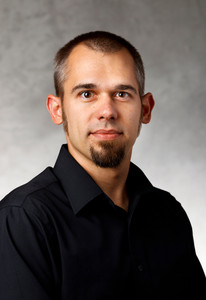
The Primarily Undergraduate Institution (PUI) Working Group finished its initial work and final report to the society, but we’re making plans to move forward with a permanent group in SICB. We’d love to hear your thoughts! We will have several events at the Austin meeting, including a return of the informational booth to build community and network. Last year’s booth was a great success, so stop by each day to answer our daily question, find out more about PUIs, link up with a collaborator, or just meet new people! We will also have an interactive poster to highlight what PUIs do, and to advertise PUI talks and posters! This year we will also host a PUI social event open to all – we encourage PUI faculty, as well as grad students and postdocs interested in a PUI career, to join us. Stay tuned for the time and place! Don’t forget to follow us on our Twitter account @SICB_PUI, and if you’re interested in getting involved in future work or being on our email list for PUI-related info, please fill out this brief form.
